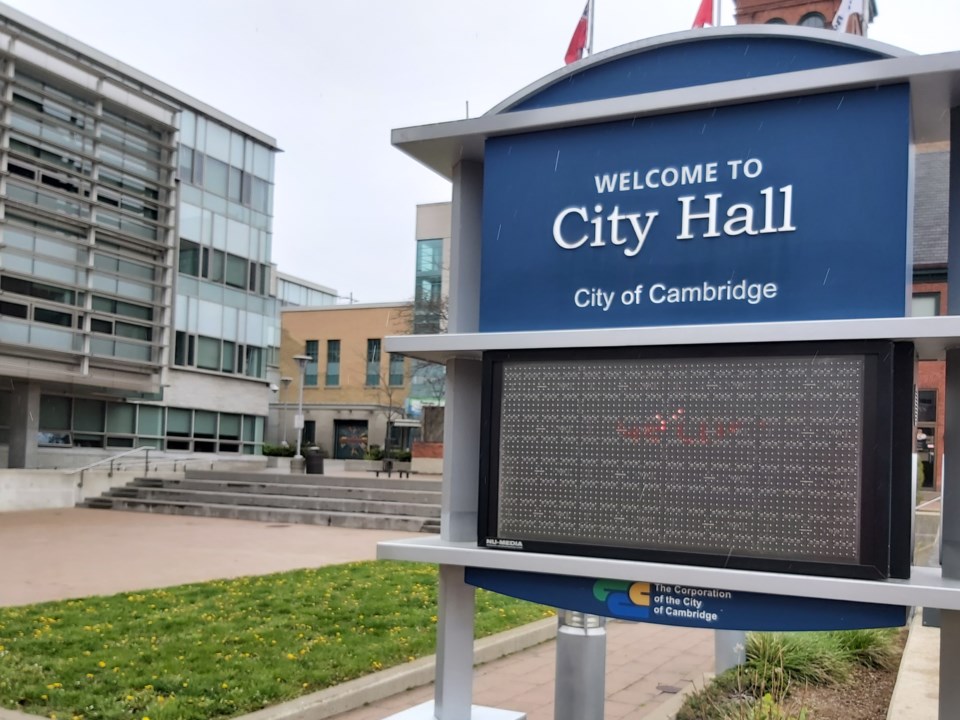Taxpayers will get to weigh in soon on the city's 2025 budget and the projected 8.1 per cent tax hike that comes with it.
Public input will be a key component of budget preparations over the next few months and city staff say residents should expect to hear about the launch of those consultations in the "very near future."
Council approved a budget timeline and guidelines last night, directing staff to the begin work on the 2025 Operating Budget in alignment with the city's strategic plan and the levy increase that includes a base level-of-service increase of 5.72 per cent.
Coun. Corey Kimpson urged the city to promote upcoming public budget presentations as widely as possible after some expressed concern about the projected increase.
If left untouched, the 8.1 per cent tax hike would have an estimated annual impact of $44 per $100,000 of a home's assessed value.
That equates to a city portion tax hike of $147 for the average household and doesn't include hikes to water rates or the Region of Waterloo portion of the tax bill, which is projected to rise 12 per cent next year.
Councillors Helen Shwery and Nicholas Ermeta said they weren't happy to see the base budget where it is and are looking forward to seeing options on how to reduce that impact when the draft budget is presented later this year.
Mayor Jan Liggett made a point of stating the projected increase, which would set a record for Cambridge, is "just a start" in looking at what the city needs to raise from taxpayers in 2025.
The tax hike is necessary to maintain current service levels and pay for capital projects already on the books.
Options to reduce the budget will be debated once the draft document is presented this fall.
The projected tax increase includes a previously agreed-upon 1 per cent dedicated infrastructure levy to tackle the city's hefty infrastructure gap, estimated to be in the range of $170 million.
The impact of the 1 per cent levy on taxpayers works out to $1.27 per month for the average homeowner.
Council approved it in February knowing it's necessary to cover the difference between what's in reserve funds and what's needed to maintain or replace aging assets like roads, watermains and bridges.
The city’s 10-year Capital Plan, approved as part of the 2024 Budget, included $726 million of capital projects funded over 2024 to 2033.
Help from upper levels of government could offset some of those costs down the road, but the trend of municipalities securing that funding hasn't been promising and pressure to discount or eliminate development charges altogether is adding to the financial strain.
Next year's projected levy increase also includes one-time costs of .49 per cent, growth impact costs of .31 per cent, debt servicing costs of 2.13 per cent, and various impacts from capital projects totalling 3.29 per cent.
Paying for the new recreation complex alone will add 1.67 per cent to the levy next year.
Assessment growth is projected at 1 per cent. It's a measure of the addition to the tax base that results in more revenue and a reduced burden on the tax levy.
Council approved the 2024 Water Utility Budget in February. It included a projected water utility rate increases of 4.78 per cent in 2025, and 4.64 per cent in 2026 and 2027 respectively.
The forecasted combined water and sewer rate increase will have an annual impact of $46 for the average household consuming 170 cubic meters of water per year.
Despite council agreeing to those increases earlier this year, Shwery said she'd like to see options to lower the water rate impact on taxpayers.



